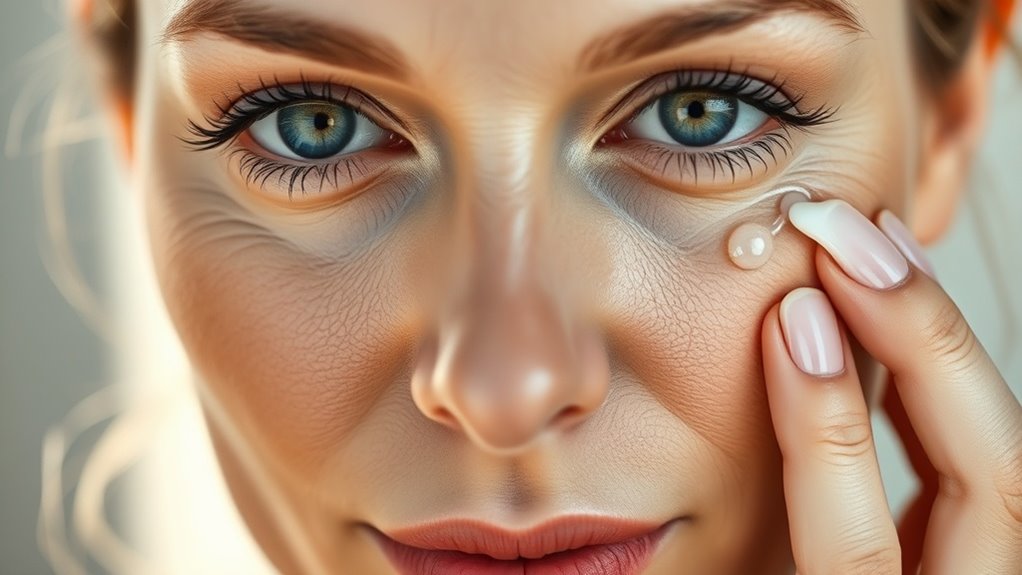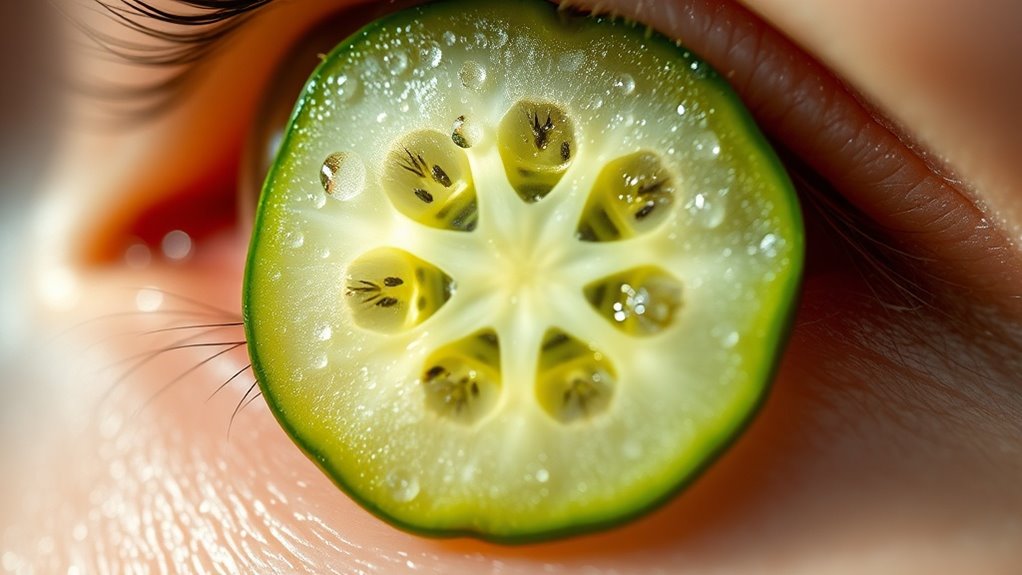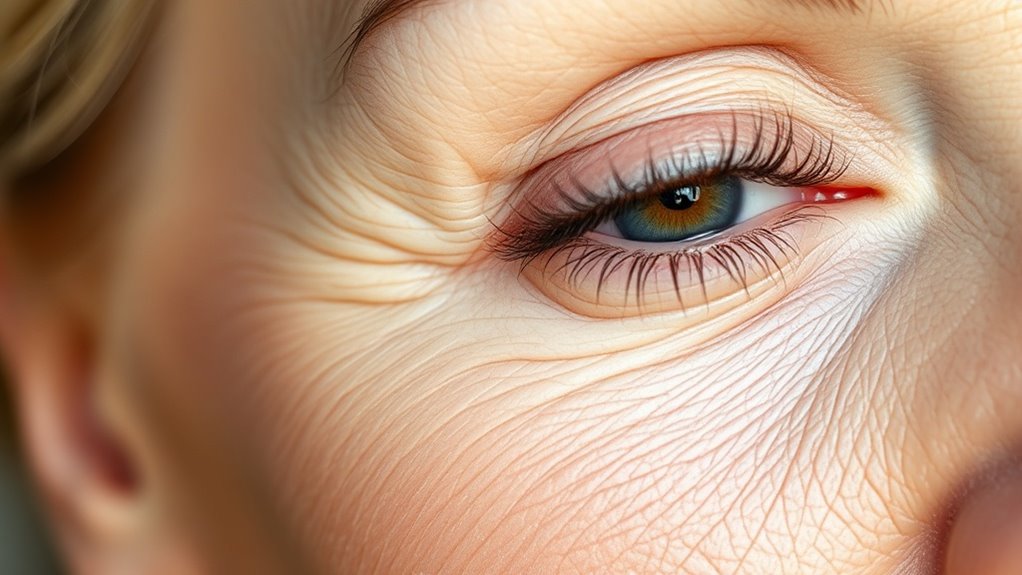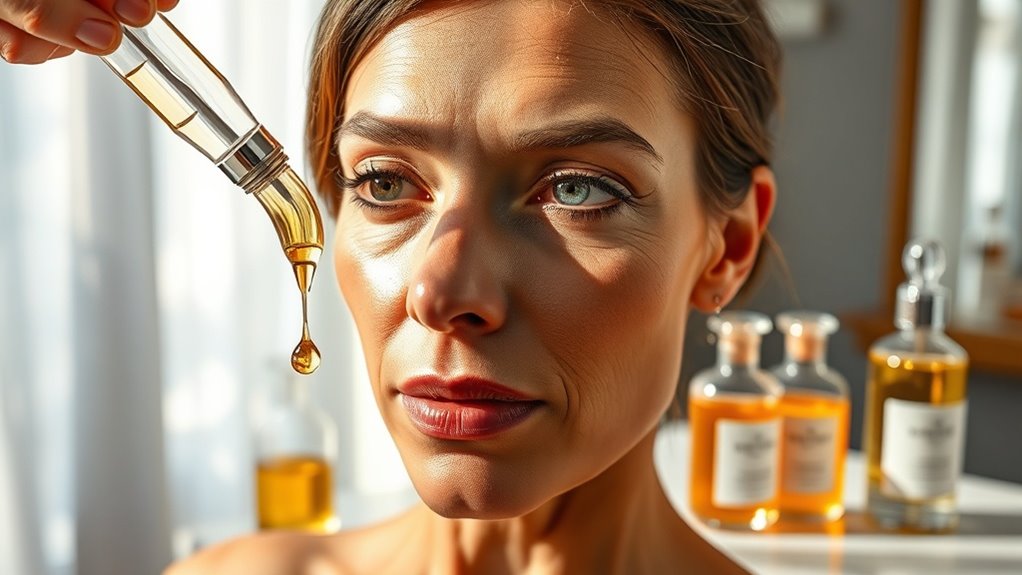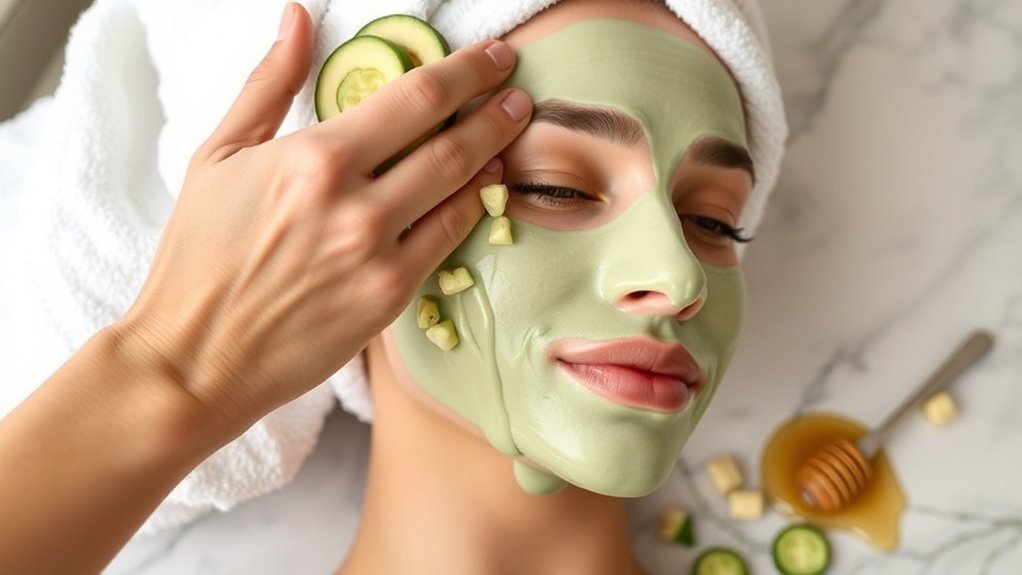Wrinkle Remedies Face Experts Recommend
Studies show that 87% of women over 30 consider facial wrinkles their primary aging concern, yet many aren’t using clinically proven solutions. You’ll find that dermatological science has made significant advances in wrinkle treatment, combining both professional interventions and at-home care options. While the anti-aging market offers countless products, understanding which remedies actually work requires careful examination of peer-reviewed research and expert recommendations. Let’s explore the most effective, science-backed approaches to combat facial aging.
Understanding Different Types of Facial Wrinkles
Facial wrinkles develop through distinct mechanisms and manifest in various patterns across the skin’s surface.
You’ll encounter static wrinkles that remain visible even when your face is at rest, and dynamic wrinkles that appear with muscle movement.
Common types include crow’s feet around your eyes, glabellar lines between your brows, and nasolabial folds from your nose to mouth corners.
To select effective wrinkle remedies, face each type appropriately.
Expression lines respond well to neurotoxins, while gravitational folds may require dermal fillers.
Sleep lines typically need specialized topical treatments, and sun-damage wrinkles often benefit from retinoids. Additionally, collagen production decreases after age 40, making it crucial to incorporate ingredients that support skin firmness in your anti-aging regimen.
Science-Backed Topical Treatments
Building on our understanding of wrinkle types, scientifically validated topical treatments offer measurable results through specific biochemical mechanisms.
You’ll find retinoids, particularly tretinoin, leading the pack with decades of research supporting their collagen-stimulating properties.
Peptides work by signaling your skin to boost collagen production, while niacinamide improves barrier function and reduces inflammation.
Vitamin C serves as a powerful antioxidant that protects against free radical damage while promoting collagen synthesis.
Hyaluronic acid hydrates deeply by attracting water molecules, temporarily plumping fine lines.
Alpha-hydroxy acids exfoliate and stimulate cell turnover, revealing fresher skin beneath.
Additionally, the formula targets multiple pathways of skin aging, activating cellular renewal and boosting collagen synthesis for enhanced results.
Professional Dermatological Procedures
When over-the-counter treatments don’t provide desired results, professional dermatological procedures offer more intensive solutions for wrinkle reduction.
You’ll find evidence-based options like chemical peels, which remove damaged outer skin layers through controlled exfoliation.
Botulinum toxin injections temporarily paralyze muscles that cause expression lines, while dermal fillers restore lost volume.
For deeper wrinkles, laser resurfacing targets specific skin depths to stimulate collagen production.
Radiofrequency and ultrasound therapies penetrate beneath the skin’s surface to tighten and lift tissue.
Each procedure requires careful evaluation by a board-certified dermatologist to determine ideal treatment protocols.
Natural and Home Remedies
Many people seeking wrinkle remedies prefer natural alternatives before pursuing medical interventions. You can incorporate antioxidant-rich foods like berries and leafy greens into your diet to combat free radical damage.
Apply natural oils such as rosehip, argan, or coconut oil to hydrate and nourish your skin. Green tea compresses can reduce inflammation and provide polyphenols.
You’ll also benefit from aloe vera’s collagen-stimulating properties and vitamin E’s protective effects. Remember to protect your skin with natural mineral sunscreens containing zinc oxide or titanium dioxide, and maintain proper hydration by drinking adequate water daily.
Lifestyle Changes for Wrinkle Prevention
Making strategic lifestyle modifications can greatly reduce the development of premature wrinkles and slow the natural aging process.
You’ll need to protect your skin from UV radiation by applying broad-spectrum sunscreen daily and wearing protective clothing.
Maintain adequate hydration by drinking 8-10 glasses of water daily, and get 7-9 hours of quality sleep to support cellular repair.
Stop smoking immediately, as it accelerates collagen breakdown and constricts blood vessels.
Include antioxidant-rich foods in your diet, particularly those high in vitamins C and E.
Regular exercise increases circulation and promotes cellular oxygenation, while stress management techniques help prevent cortisol-induced collagen degradation. Additionally, consuming omega-rich foods can significantly enhance collagen synthesis and contribute to healthier skin.
Building an Effective Anti-Aging Skincare Routine
To effectively combat wrinkles, you’ll need a strategic skincare routine that incorporates evidence-based active ingredients and proper application sequences. Research shows that consistent application of targeted treatments yields peak anti-aging results when following a systematic approach.
-
Start with a gentle pH-balanced cleanser to remove debris without disrupting your skin barrier.
-
Apply antioxidant serums containing vitamin C and E during daytime to neutralize free radicals.
-
Use retinoids nightly to stimulate collagen production and accelerate cell turnover.
-
Finish with broad-spectrum SPF 30+ sunscreen daily and peptide-rich moisturizer to maintain hydration and protect against UV damage. Additionally, incorporating ingredients such as medium-chain fatty acids can enhance skin resilience against aging.

